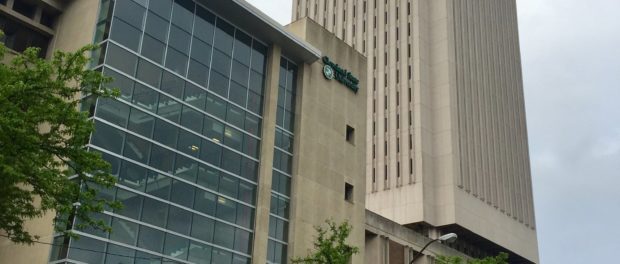Room scans before proctored remote tests are 4th Amendment searches and unconstitutional
A scan of a student’s room by a proctor admini-stering a remote exam at a public university was a search subject to restrictions on unreasonable searches under the Fourth Amendment, a federal judge in Ohio ruled August 22 (Ogletree v. Cleveland State University).
The case involved a student at Cleveland State University, Aaron Ogletree, who was subjected to a room scan using his computer’s camera prior to taking a proctored remote exam in the spring of 2021, when classes were being offered remotely because of the pandemic.
Ogletree, who was given two hours’ notice of the scan, objected, saying that he had 1099 tax forms and medication in his room and would not be able to put them all away before the start of the test.
The student nevertheless performed the room scan, which lasted less than a minute. Scans at the university were visible to other students and they were inconsistently applied.
Ogletree then brought suit against the university, arguing that the room scan violated his Fourth Amendment right to be free from unreasonable searches. Both parties moved for summary judgment, and Judge Philip Calabrese of the U.S. District Court for the Northern District of Ohio issued a decision in favor of the student August 22.
The court first had to decide if the room scan was a search subject to constriction under the Fourth Amendment of the US Constitution. Ogletree argued that students have an expectation of privacy in their houses and bedrooms, where many of the proctored tests would be taking place, and that any scan of the room was thus a “search.”
Addressing the University’s argument that Ogletree did not have a reasonable expectation of privacy in his bedroom at the time of the exam because room scans are a well-known and standard practice of test proctoring,
Judge Calabrese wrote that “Though schools may routinely employ remote technology to peer into houses without objection from some, most, or nearly all students, it does not follow that others might not object to the virtual intrusion into their home or that the routine use of a practice such as room scans does not violate a privacy interest that society recognizes as reasonable, both factually and legally.”
Judge Calabrese agreed with Ogletree that students had a reasonable expectation of privacy in their surroundings even during a remote proctored test. Such scans go into places where others are only expected to enter on invitation, including through the use of cameras, he noted.
The university also argued that the scan was not a search, as it was not coerced, not conducted for a regulatory purpose, not as part of a criminal investigation, and because the student controlled where the exam—and the scan—would take place.
To make their case, they relied on a 1971 Supreme Court case, Wyman v. James, which upheld a search of a welfare beneficiary’s home as a requirement for receiving benefits. Judge Calabrese rejected these arguments without much explanation, simply noting that the two cases were different and that jurisprudence has changed in the 50 years since Wyman was decided.
Turning to whether the room scan was reasonable, Judge Calabrese weighed Ogletree’s privacy expectations against the University’s interests in assuring he was not cheating on his exam. “It is difficult to see how enrollment in a higher educational institution would limit the core protections of the home under the Fourth Amendment” in Ogletree’s case, the judge wrote.
Although Ogletree had “traded away some privacy for the privilege” of taking classes at Cleveland State, he also did not have much choice of his test location, given the strictures in place at that time due to the pandemic.
The scan itself was minimally intrusive, Judge Calabrese wrote. But “Although the intrusion at issue might not strike a person as especially problematic, particularly in the nascent Zoom era, the core protection afforded to the home, the lack of options, inconsistency in application of the policy, and short notice of the scan weigh in Plaintiff’s favor.”
After considering the university’s interests in applying the scans, Judge Calabrese found that they did not outweigh Ogletree’s privacy interest. Ogletree had pointed to other options available to proctors to detect cheating, such as monitoring exam takers for suspicious movement, and noted that the scan itself was not likely to be conclusive regarding cheating, since students were not even required to be on camera during the entire exam, and so could have accessed forbidden materials while away from their computers.
Judge Calabrese agreed, noting that other safeguards would achieve the same purpose as the scans and that the university had not actually done much to show the efficacy of the scans. Additionally, “a record of sporadic and discretionary use of room scans does not permit a finding that room scans are truly, and uniquely, effective at preserving test integrity.”
In conclusion, Judge Calabrese held, the university’s use of the scans was unconstitutional.


